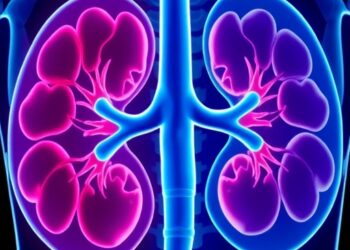Patients with very advanced solid tumors saw no significant improvement in overall survival after receiving systemic therapy, according to a study published today in JAMA Oncology by researchers at The University of Texas MD Anderson Cancer Center and Yale Cancer Center.
Patients with very advanced solid tumors saw no significant improvement in overall survival after receiving systemic therapy, according to a study published today in JAMA Oncology by researchers at The University of Texas MD Anderson Cancer Center and Yale Cancer Center.
The findings provide further evidence to help oncologists counsel patients that additional cancer-directed therapy is not likely to benefit them, allowing them to focus instead on palliative and supportive care options that have been demonstrated to improve quality of life and survival.
“Our study highlights the importance of open and honest communication about prognosis between providers and patients,” said senior author Kerin Adelson, M.D., chief quality and value officer at MD Anderson. “Our findings may help oncologists reconsider treatment and instead provide patients with transparent information on supportive care options so they are able to make informed decisions.”
Adelson and colleagues analyzed de-identified data from more than 78,000 adult patients treated at 144 community oncology practices and academic/research centers. Patients included in the study were diagnosed between 2015 and 2019 with metastatic or advanced disease in one of the six common cancers: breast, colorectal, non-small cell lung, pancreatic, renal cell carcinoma, and urothelial cancers.
Researchers stratified oncology practices by how frequently providers gave systemic therapy for very advanced cancers and then studied overall survival of patients with six common solid tumor types treated in these practices. They found no difference in patient survival among practices that gave more systemic therapy for very advanced cancer compared with those who gave less.
“A large body of research has shown that goals-of-care conversations are critical to ensuring patients receive care in line with their prognosis and personal goals. This is even more critical when we know additional therapy will not improve a patient’s survival, but only cause toxicity and harm,” Adelson said.
As part of its institutional Strategy, MD Anderson is working to ensure goal-concordant care for its patients. This multidisciplinary approach integrates a patient’s individual values and goals into their care plans. MD Anderson is developing a number of strategies to encourage and streamline early conversations about goals of care, and the institution is identifying ways to restructure and realign resources related to palliative and end-of-life care.
Adelson began this research while at Yale Cancer Center. This study was supported by Flatiron Health. A full list of co-authors and disclosures is available here.
Journal
JAMA Oncology
Article Publication Date
16-May-2024




